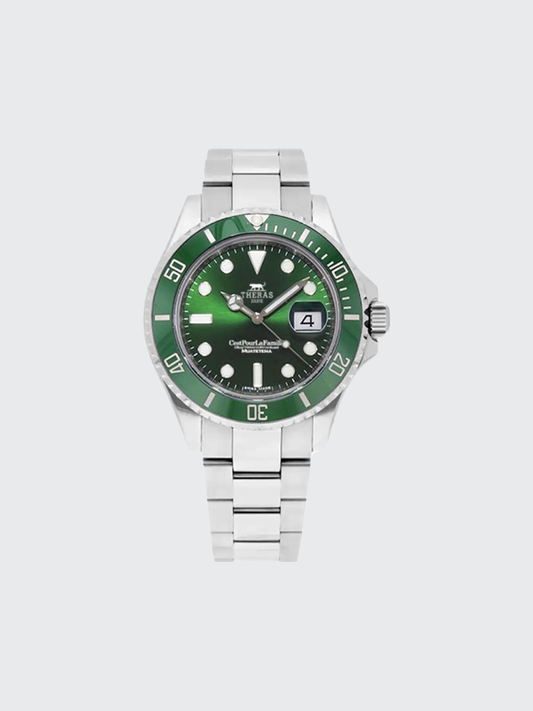𝐅𝐨𝐫𝐦𝐮𝐥𝐚 𝟏 𝐢𝐧 𝐀𝐟𝐫𝐢𝐜𝐚: A Long-Awaited Comeback?
Could Formula 1 finally return to Africa? That’s the question echoing across the motorsport world, as negotiations between Formula 1’s leadership and African nations like South Africa, Rwanda, and Morocco continue to gain attention. While glamorous destinations like Las Vegas, Monaco, and Abu Dhabi dominate the current calendar, a glaring absence remains—Africa, the only inhabited continent without a Grand Prix.
In recent years, Stefano Domenicali, CEO of Formula 1, has confirmed ongoing talks with three potential African venues: Kyalami in South Africa, Kigali in Rwanda, and a proposed street circuit in Cape Town. Each brings a unique blend of history, ambition, and challenges. But is Africa truly ready for the return of Formula 1 after a 30-year hiatus? Let’s dive deep into the possibilities.
Why Has Formula 1 Been Absent from Africa for So Long?
Despite Africa’s passion for motorsports and its historical significance in Formula 1, the continent has not hosted a Grand Prix since 1993. The last race was held at Kyalami, just outside Johannesburg, where Alain Prost claimed victory for Williams and the legendary Ayrton Senna shared the podium. Since then, economic instability, political challenges, and logistical hurdles have kept the sport away.
In an industry driven by sponsorship, infrastructure, and global visibility, Africa has struggled to meet the long-term requirements that Formula 1 demands. However, that narrative may finally be shifting.
Stefano Domenicali: “We Are in Talks with Three African Venues”
During a press event aboard the luxury cruise ship Explora II at the Monaco Grand Prix, Stefano Domenicali reiterated Formula 1’s commitment to expanding into Africa. "This is our priority," he declared. "We are negotiating with three destinations. We miss one continent, and we want to connect with it.”
While he did not explicitly name the candidates, insiders point to Kyalami, Cape Town, and Kigali as the front-runners. Each venue presents a compelling but distinct proposal.
Kyalami: The Historic Favorite
Kyalami is the sentimental favorite. This iconic circuit, which has hosted F1 races since 1967, is deeply rooted in the sport’s history. It offers a fast, technical layout and an existing motorsport culture. In recent years, multiple initiatives have aimed to restore Kyalami to FIA Grade 1 status, the certification required to host Formula 1.
Yet, challenges remain. The circuit still holds a Grade 2 license, and the financial investment required for upgrades is significant. Political uncertainty and a lack of long-term guarantees have also delayed progress. According to South Africa’s Minister of Sports, Gayton McKenzie, reviving Kyalami is a "national priority," and plans are underway to complete renovations by 2027.
Rwanda’s Kigali: A Bold New Challenger
While Kyalami looks to the past, Rwanda is looking to the future. At the FIA General Assembly in Kigali, President Paul Kagame formally announced Rwanda’s candidacy to host a Formula 1 Grand Prix. Their proposal includes a brand-new FIA Grade 1 circuit near the upcoming Bugesera International Airport, designed by ex-F1 driver Alexander Wurz.
Stretching 5.63 km through Rwanda’s scenic hills, the planned circuit promises a unique racing experience. Backed by strong political support and Rwanda’s impressive economic growth (averaging 7% annually), the bid is serious and strategic. Rwanda has also increased its global visibility through its “Visit Rwanda” campaigns, partnering with top European football clubs like Arsenal and Paris Saint-Germain.
However, Rwanda faces geopolitical headwinds. Its involvement in regional conflicts, particularly in the eastern Democratic Republic of Congo, has drawn criticism. In February, the Congolese government requested that Formula 1 suspend discussions with Rwanda, citing security concerns tied to the M23 militia crisis.
Cape Town: The Scenic Sleeper Option
Another candidate gaining momentum is Cape Town, South Africa’s coastal jewel. With the stunning Table Mountain as a backdrop, the city proposes a Formula E-style street circuit in the Waterfront area, already known for hosting high-profile events. The venue combines motorsport with breathtaking visuals—a formula that has worked wonders for locations like Monaco and Baku.
Cape Town enjoys private sector backing, and tourism authorities see it as a golden opportunity to position the city as a world-class motorsport destination. However, without official FIA or Liberty Media approval, the plan remains in limbo.
Why Is Africa’s Return So Important?
As the Formula 1 calendar balloons to 24 races per season, including new stops in Qatar, Las Vegas, and Miami, many fans and drivers are questioning why Africa continues to be left behind.
According to Domenicali, “We cannot go to a new place without staying for a long time. We need a sustainable project.” The failures of short-lived ventures in India, Korea, and Turkey serve as cautionary tales.
For a successful return, Africa must not only build the infrastructure but also foster a strong motorsport culture. And that’s exactly what countries like Rwanda and South Africa are attempting to do—with government support, private investment, and long-term planning.
What Do the Drivers Think?
Top Formula 1 drivers have voiced their support for a return to Africa. Lewis Hamilton, the sport’s only Black world champion, has been a vocal advocate. “It’s unacceptable that Africa is not part of the calendar. A Grand Prix here would bring tourism, development, and showcase the continent’s incredible beauty and potential,” he said.
Max Verstappen, the reigning world champion, agrees: “It would be amazing to race on every continent. Africa has a special energy that the sport needs.”
Tradition vs. Innovation: Who Will Win the Bid?
The race to bring Formula 1 back to Africa pits tradition against innovation. Kyalami, steeped in legacy, looks to reignite its motorsport past. Kigali, on the other hand, represents a futuristic and strategic pivot toward East Africa’s emerging markets.
Each proposal has merits:
- Kyalami: Established circuit, motorsport legacy, experienced promoters.
- Kigali: Political backing, modern infrastructure, regional stability (despite external tensions).
- Cape Town: Tourism magnet, stunning visuals, street race potential.
Yet all face the same obstacle—convincing Liberty Media and Formula 1 that Africa can deliver a viable, long-term return on investment.
Is a Return to Africa Inevitable?
The truth is, the return of Formula 1 to Africa seems less a question of “if” and more of “when.” As global interest in the sport grows, particularly among younger and more diverse audiences, the commercial incentive to expand into untapped markets increases.
Negotiations with Rwanda are set to resume in the coming months, and Kyalami continues its upgrades. The clock is ticking, and Africa is poised for its comeback. Whether the engines roar in Kigali, Cape Town, or Kyalami, one thing is certain:
Formula 1 belongs in Africa.
After more than three decades of absence, Africa deserves a place on the F1 calendar. The continent offers not only history and heritage but also ambition and opportunity. The return of Formula 1 to African soil would not just be a spectacle—it would be a symbolic act of inclusion and global unity.
As Domenicali put it best:
“We miss a continent, and we want to connect with it.”





